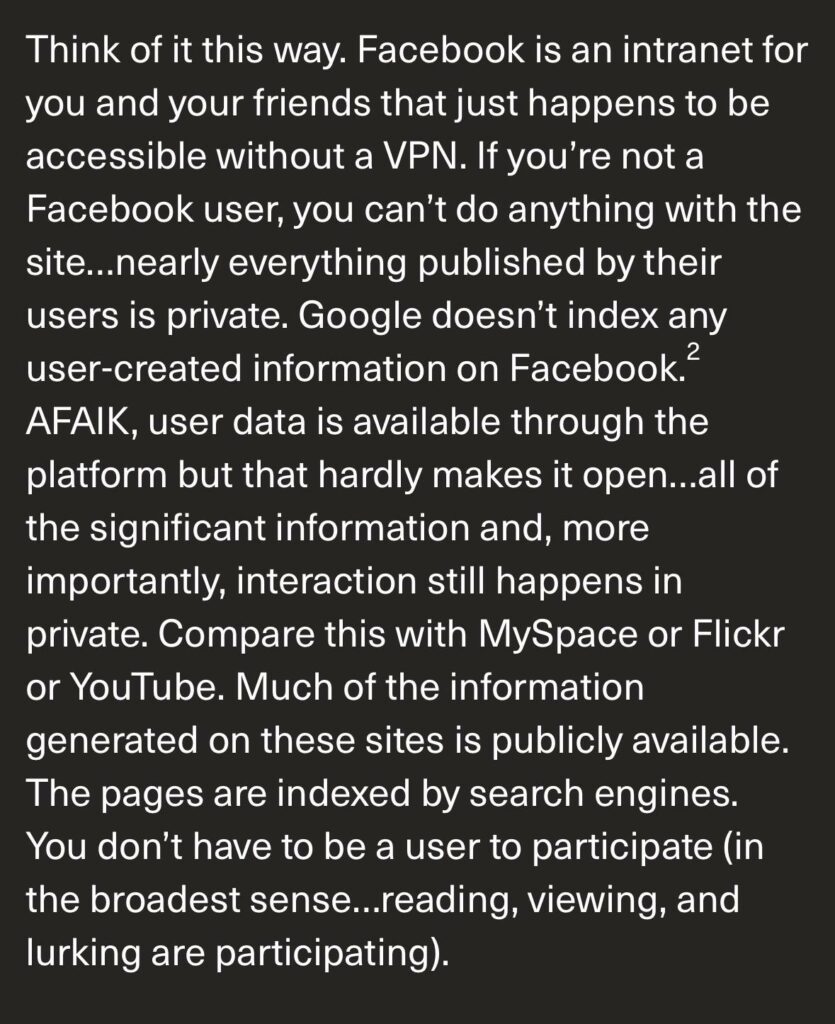With rebooting the #openweb we run headfirst into the #geekproblem, a recurring pattern where: Technically brilliant people build powerful tools …but those tools remain socially unusable …or solve only geek problems, not the needs of actual communities. It’s not malice, often it’s idealism, but it creates a dead-end culture of endless prototypes, abandoned standards, and empty tech demos. Meanwhile, the real-world crisis deepens.
The work we need is bridges building, let’s try this ere “P2P news app” built on #dat Hypercore/Hyperswarm is exciting. Yes, it’s similar to Nostr in structure: distributed relays, client-side aggregation, unstoppable flow. But as with Nostr tech isn’t enough. We are social creatures. A usable system needs:
- Clear use cases rooted in human relationships – not just tech possibilities.
- User-facing front-ends that invite participation, not gate it.
- Interoperability with existing protocols (ActivityPub, ATProto, etc.) to avoid siloing.
- Bridges between architectures – e.g. client-server ↔ P2P – so that real-world adoption is gradual and survivable.
The good news, the wider #OMN project is already a sane path forward, with a #KISS hybrid path. The plan is in bridging #P2P and client-server as a way out of this. Something like:
A lightweight server bridge that serves data to client-server users (ActivityPub, fediverse, legacy web),
While simultaneously feeding a P2P mesh, with each peer storing and distributing redundant objects,
So that over time, client-server becomes the bootstrapping layer, and #P2P becomes the long-term archive + resistance layer.
“Data is just object flows – how the user gets the object is irrelevant technically.”This is the kind of thinking that gets us out of the traps, by moving from protocols to people. This isn’t just about code, it’s about culture. The #geekproblem won’t be solved by more architecture diagrams, it needs movements that embrace imperfection and prioritizes social use, visible, working front-ends people can contribute to and understand, documentation and tooling that builds capacity in others, not silos around the brilliant few.
What next? For the devs:
- Can the p2p-news-app codebase be modularized to plug into #OMN projects as a data backend, even in a basic way?
- Can we bridge shared data objects across protocols (e.g. post metadata flows from P2P → ActivityPub), even if janky at first?
- Can we prototype a simple but cross protocol usable frontend, the examples is the work on #makeinghistory and #indymediaback, that lets non-geeks see and touch the network they’re part of?
Yes, for the movement, keep things messy but moving. Avoid dead ends by always asking:
"How does this empower non-technical users to organize, document, and publish together?"Keep the tech grounded in the social fabric, the activists, journalists, organisers, and rebels this is all meant to serve. If you’re reading this and thinking, “I can help,” please step forward. There’s space in wider tech/social #OMN and #MakingHistory for everyone, coders, writers, designers, testers and storytellers.
Let’s build bridges, not silos, let’s build tools people can use, not just tools geeks can admire, let’s do this together.

